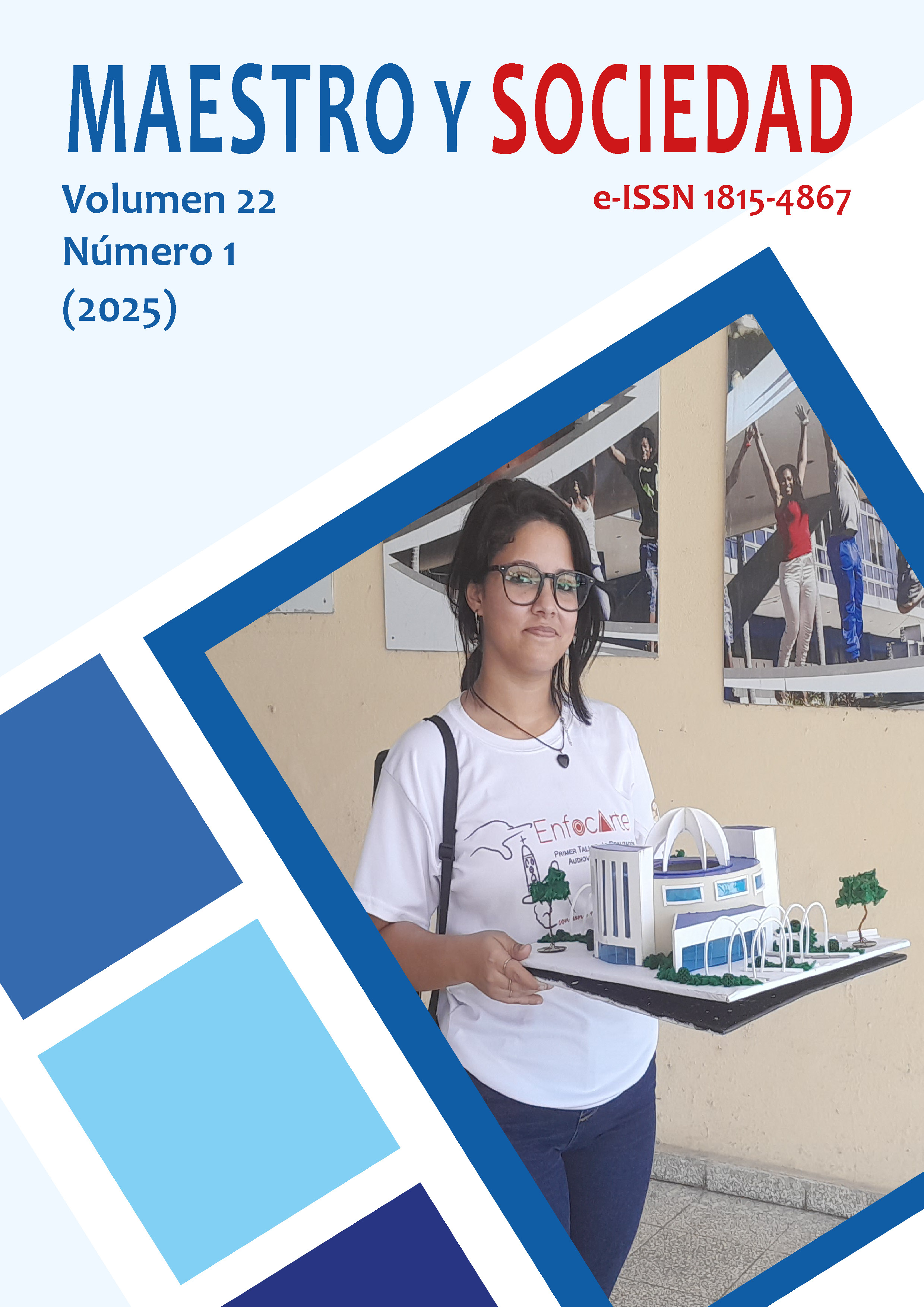Institutional transformation through the implementation of electronic government: Comparative analysis in local administrations in Latin America
Keywords:
Electronic government, institutional transformation, local administrations, socioeconomic development, Latin America, digitalization, public policiesAbstract
Introduction: This article examines the institutional transformations resulting from the implementation of electronic government initiatives in various Latin American local administrations. Objective: Through a comparative analysis of representative cases in Mexico, Brazil, Chile, Colombia and Uruguay, the main socioeconomic impacts generated by the digitalization of public services are identified. Methods: The methodology used combines quantitative analysis of indicators of administrative efficiency and citizen satisfaction, with qualitative evaluations on transparency and civic participation. Results: The results reveal that successful e-government implementations have significantly reduced administrative processing times (45% on average), decreased operational costs (32%), and increased institutional transparency. However, important challenges persist, such as the digital divide, organizational resistance to change, and financial sustainability of the initiatives. The study concludes that the success of these transformations depends mainly on three factors: the political commitment of local authorities, the technological adaptation to the socioeconomic particularities of each region, and the continuous training of administrative personnel. These findings offer an empirical basis for developing implementation models adaptable to the diverse Latin American institutional contexts.
References
Arshad, H., Asghar, S., & Noor, M. A. (2023). A framework for eGovernment project success: an exploratory study using systematic literature review and empirical investigation. Electronic Government, an International Journal, 19(1), 22. https://doi.org/10.1504/EG.2023.127577
Cano, Y. del P. Y. F. (2022). REPRESENTACIONES SOCIALES DEL GOBIERNO ELECTRÓNICO. Revista de Investigaciones, 9(3), 168–180. https://doi.org/10.26788/RIEPG.V9I3.1846
Castro, C., & Lopes, C. (2022). Digital Government and Sustainable Development. Journal of the Knowledge Economy, 13(2), 880–903. https://doi.org/10.1007/S13132-021-00749-2/TABLES/6
Collantes, Z., & Collantes, E. (2022). Políticas públicas, transformación digital en una municipalidad de la región de Amazonas. Ciencia Latina Revista Científica Multidisciplinar, 6(1), 224–243. https://doi.org/10.37811/CL_RCM.V6I1.1495
Creswell, J. W., & Clark, V. P. (2017). Designing and Conducting Mixed Methods Research | Online Resources. Sage Publications. https://study.sagepub.com/creswell3e
Criado, J. I. (2021). Digital Public Administration in Latin America: Digitalization, Public Innovation, and the Future of Technologies in the Public Sector. The Emerald Handbook of Public Administration in Latin America, 343–374. https://doi.org/10.1108/978-1-83982-676-420201014/FULL/XML
Criado, J. I., & Gil-Garcia, J. R. (2019). Creating public value through smart technologies and strategies: From digital services to artificial intelligence and beyond. International Journal of Public Sector Management, 32(5), 438–450. https://doi.org/10.1108/IJPSM-07-2019-0178/FULL/PDF
Cruz, E. F. Q. D. La. (2022). Efectividad de la implementación del gobierno electrónico y digital en la gestión institucional de gobiernos regionales. Ciencia Latina Revista Científica Multidisciplinar, 6(5), 2079–2094. https://doi.org/10.37811/CL_RCM.V6I5.3239
Nieto-Gómez, E., & Giraldo-Díaz, R. (2021). Análisis crítico de las transformaciones digitales promovidas por los organismos multilaterales para el período postpandemia COVID-19. Revista Caribeña de Ciencias Sociales (RCCS), 10(7), 106–120. https://dialnet.unirioja.es/servlet/articulo?codigo=9419483&info=resumen&idioma=ENG
Fagundes, J. R., Antonio, S., Cario, F., Luis Da, A., & Leite, S. (2024). Análisis de Buenas Prácticas Internacionales en Gobernanza y Políticas Públicas relacionadas con los Servicios Públicos. Mundos Plurales - Revista Latinoamericana de Políticas y Acción Pública, 11(2), 232–247. https://doi.org/10.17141/MUNDOSPLURALES.2.2024.6419
Flores Farro, A. (2021). Gobierno electrónico y gestión pública. Ciencia Latina Revista Científica Multidisciplinar, 5(6), 13807–13821. https://doi.org/10.37811/CL_RCM.V5I6.1359
Kleinman, D. L., & Moore, K. (2014). Routledge handbook of science, technology, and society. Routledge Handbook of Science, Technology, and Society, 1–518. https://doi.org/10.4324/9780203101827
Mergel, I., Edelmann, N., & Haug, N. (2019). Defining digital transformation: Results from expert interviews. Government Information Quarterly, 36(4), 101385. https://doi.org/10.1016/J.GIQ.2019.06.002
Organización de los Estados Americanos (OEA). (2021). Gobierno Electrónico en las Américas. https://www.oas.org/es/sap/dgpe/bid/2021/docs/e-government_americas_2021.pdf
Ríos, M. C., & Pérez, C. R. (2023). Gestión del gobierno electrónico en las alcaldías. Gestión y Desarrollo Libre, 4(8), undefined-undefined. https://doi.org/10.18041/2539-3669/GESTIONLIBRE.8.2019.8125
Sangama Reyna, E. J. (2024). Transformación Digital en la Gobernabilidad de América Latina. LATAM Revista Latinoamericana de Ciencias Sociales y Humanidades, 5(5). https://doi.org/10.56712/LATAM.V5I5.2774
Sarantis, D., Soares, D., Susar, D., & Aquaro, V. (2022). Local e-Government Development: Results of an international survey. ACM International Conference Proceeding Series, 391–396. https://doi.org/10.1145/3560107.3560167
Vázquez, J. B. (2023). El procedimiento administrativo y el gobierno electrónico. Cuadernos de Derecho Local, undefined-undefined. https://doi.org/10.61521/CUADERNOSDERECHOLOCAL.22.433
Zambrano Yépez, C. A. (2021). Las TIC en la administración pública y su impacto en la transparencia y acceso a la información en los Gobiernos Autónomos Descentralizados Provinciales del Ecuador. 1. https://dialnet.unirioja.es/servlet/tesis?codigo=339811&info=resumen&idioma=SPA
Published
How to Cite
Issue
Section
License
Copyright (c) 2025 Mélida Belén Araque Espinoza

This work is licensed under a Creative Commons Attribution-NonCommercial-NoDerivatives 4.0 International License.
This journal provides immediate open access to its content, based on the principle that offering the public free access to research helps a greater global exchange of knowledge. Each author is responsible for the content of each of their articles.



























 Universidad de Oriente
Universidad de Oriente 